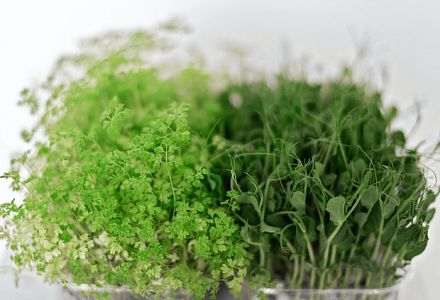The last couple of centuries have been full of incredible growth and development. The industrial revolution has completely changed how humans work and live.
Constant and exponential growth has enabled the human race to develop and achieve things once deemed impossible. The world, and almost everyone in it, is connected via small rectangle devices, and it seems like space tourism is just around the corner (at least for millionaires, that is).
Yet, this same rapid growth has led to changes that are not always beneficial to the environment.
The farming industry is a perfect example of this. Standard, modern farming practices are now considered destructive and polluting. This is because the modern methods focus on increasing yields and higher profit margins rather than on protecting the environment.
What is ecological farming?
Greenpeace, an organisation, focusing on identifying environmental problems and promoting the best solutions for the future, defines ecological farming as a type of farming that "Protects soil, water and climate, promotes biodiversity, and does not contaminate the environment with chemical inputs or genetic engineering."
This means that ecological farming (also known as agroecology) is characterised by using agricultural techniques to grow healthy crops without degrading the environment, the soils the crops are grown on, or the surrounding environment.
Farmers who choose agroecology pay special attention to the impact their actions have on their land and the environment altogether. For example, they will not use products that can contaminate nearby rivers or use pesticides that will put the biodiversity in their region in danger.
Ecological farming focuses on using natural resources as well as avoiding irradiation of the soil. The resources used to run these types of farms come from sustainable sources, such as solar panels or wind turbines instead of fossil fuels. In addition, nature is used to repel potentially dangerous pests and weeds instead of polluting chemicals. Agroecology also encourages recycling and the use of natural fertilisers.
Is ecological farming sustainable?
Yes, ecological farming is sustainable.
Various environmental groups believe that sustainable agricultural practices could reduce food poverty by ensuring global food security, as well as help the world adapt to and mitigate the effects of climate change.
Sustainable agriculture aims to use readily available resources in the most efficient way possible. It reduces the use of non-environmental friendly resources and limits water usage (with a particular focus on avoiding irrigation).
Is ecological farming any different from organic farming?
While often used interchangeably, ecological and organic farming are not the same.
While ecological farming views the soil it works on as a part of a larger ecosystem, organic farming focuses on the final product. Theoretically, organic products could be produced with or without, keeping agroecology in mind.
Saying that, in practice, products that want to claim an "organic" label in the EU must keep ecological farming in mind. In the past, any products grown without pesticides, herbicides, the use of GE or man-made fertilisers, or livestock feed additives could claim to be organic. Today, the word starts to have a more holistic meaning.
According to the EU, for a farm to be considered organic, it should also limit the impact it has on the environment and encourages:
-
responsible use of energy and natural resources
- biodiversity
- preservation of regional ecological balances
- improvement of soil fertility
- maintenance of water quality
Why is the current model of farming problematic?
The current farming model is focused on increasing the yield as easily and cheaply as possible.
Today, we know that this strategy will backfire. It will backfire not only on the farmer but also on the consumers and the planet as a whole.
Modern, destructive agriculture uses fossil fuels, agrochemicals, and GM crops, which all contribute to degrading natural resources. In addition, toxic and synthetic fertilisers harm the soil, animals, and plants. But, in the long term, they can also lead to lowering nature's ability to prevent and fight diseases.
Destructive agriculture endangers our climate and puts all of us (and our access to food) at risk.
What are the benefits of agroecology?
For those focused on making a quick profit, it might be hard to see the benefits of ecological farming right away. It might feel like more work for less profit, but this is a very short-sighted view.
There are actually many benefits to ecological farming.
Agroecology protects the soil and increases its fertility, limits erosion and soil degradation, reduces greenhouse gas emissions, and helps conserve water and natural habitats.
It might also be a great way to prepare for the inevitable climate change. Agroecology promotes farming with biodiversity in mind (instead of mon-crop agriculture, where the whole land is covered in just one crop type). It is reliable and can easily adapt to potential environmental changes.
Ecological farming has also been shown to emit fewer greenhouse gases than traditional agriculture and, in some cases, be a significant carbon sink, cleaning the air instead of polluting it.
What are some facts & figures about non-sustainable agriculture?
Did you know that the current use of chemical pesticides has led to previously unseen numbers of poisonings? A recent study looked at the available data on poisonings worldwide and concluded that there are about 385 million cases of acute poisoning annually. This number is even more shocking when you realise that the number of such cases in 1990 was an estimated 25 million.
And have you heard about genetically engineered (GE) seeds being the answer we've been looking for to deal with world hunger? Turns out that's not really the case. The UN Agriculture Assessment stated that there is not one GE seed that could in any way succeed in solving the world's food crisis. Furthermore, as a technology, GE does not work. Instead, agroecology works and might be the way forward.
Current agriculture is also highly dependent on fossil fuels. They are necessary to produce various chemicals used on fields and support the machinery. Some resources say that agriculture takes up to 20% of the total fossil fuels used in industrialised nations.
Last but not least, the big profits corporations make from their sales of chemicals used by farmers and seeds are constantly growing. Only 3 companies control as much as 50% of the world's proprietary seed market (Monsanto, DuPont and Syngenta). Biodiversity, ecological farming, sustainability and organic practices are not in their interest.
What can you do to support Sustainable Ecological Farming?
It might feel a bit overwhelming to think about agriculture's impact on the environment. If you are a farmer yourself, you can explore the ins and outs of sustainable farming and decide to use agroecology on your farms.
Those of us who do not have any farms can also help. As a non-farmer, your power lies in your consumer habits. Every time you go to a shop, you cast a vote. Every euro spent on products grown on sustainable farms is a vote.
Only by knowing and understanding the problems can people implement changes. Therefore, you can support organisations that spread knowledge and help farmers change their bad habits into good ones. The Ecological Farming Association is an excellent place to start.
You can also decide to have conversations about the problems of modern farming practices. Explain why their purchasing decisions matter and how sustainable agriculture helps everybody. The benefits are clear. Agroecology helps the environment, helps future generations, and helps current consumers have better access to safe and good food.




